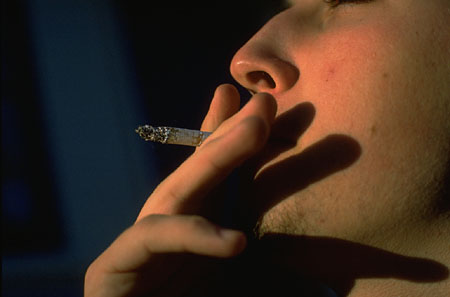Punitive damages are designed to punish a party to a case and serve as a disincentive for the miscreant to engage in the proscribed conduct in the future. When such awards are found to be excessive, our nation's highest court has reined them in, characterizing them as "takings" of property without due process, a violation of the Fourteenth Amendment.
The United States Constitution's "Due Process Clause" requires that certain standards of fairness be applied to all legal proceedings. For example, a defendant must be given adequate notice of a matter's pendency so that the party can be afforded an opportunity to interpose an appropriate defense. Along those same lines, punitive damages may become unconstitutional if they bear no relation to the offense committed, or, if the defendant was denied advance notice that the punishment would be so substantial. Disproportionately large awards can also impact interstate commerce and allow one state to regulate an industry in another state; an outcome which our nation's highest court has sought to discourage.
When it has reviewed these kind of awards, the United States Supreme Court has substantially reduced recoveries found to be "grossly excessive," but has afforded no clear indication as to how that impermissible level is triggered nor provided a precise formula to be utilized.*

In Phillip Morris v. Williams, the Estate of Jesse Williams sued the cigarette manufacturer after Williams, a heavy Marlboro smoker, died. The jury found that Williams's death was caused by smoking, that he believed the product was safe, and, that the manufacturer knowingly and falsely induced him to believe in the product's safety. The jury awarded $821,000 in compensatory damages and a staggering $79.5 million in punitive damages for harm done to him and to other Marlboro smokers in Oregon.
Philip Morris hoped the U.S. Supreme Court would find the award -- almost 100 times the compensatory damage component -- to be excessive. Philip Morris argued that allowing juries to consider the harm done to third parties when determining the size of such awards violated due process. The manufacturer further asserted that it was incapable of preparing a defense to claims held by people who had not actively participated in the litigation. In this case, while Mr. Williams may not have known cigarettes were dangerous, Philip Morris was foreclosed the ability to prove whether other Marlboro smokers were aware of those dangers and knowingly accepted the risk.
Williams's representatives argued that, in order to assess the reprehensibility of the defendant's actions, juries must be allowed to consider the harm caused to others. After all, doesn't conduct become more heinous if Philip Morris was not only deceiving Mr. Williams, but countless thousands of other citizens?
The U.S. Supreme Court agreed with both camps. In the majority opinion, Justice Breyer guided that while juries could not directly consider the harm the defendant's action caused to others, such evidence could be introduced to establish the degree of reprehensibility.**
Although the Court declined to pass on whether the award in this case was excessive, the dispute was remanded to the trial court with instructions that the jury consider the harm done to third parties only for purposes of determining the reprehensibility of Philip Morris's conduct.
Were we to venture a guess, we think it's a safe bet that a large chunk of that $79 million just went up in smoke.
![]()
For a copy of the Supreme Court's decision in Philip Morris v. Williams, please use the following link: http://www.supremecourtus.gov/opinions/06pdf/05-1256.pdf .
---------------------
*Some U.S. Supreme Court cases have suggested that around ten times the amount of compensatory damages suffered by a party would likely be an acceptable parameter.
**Confused? As Justice Stevens, noted in his dissent, "The nuance eludes me." Also confusing is that Justices Thomas and Scalia, the most conservative members of the Court, joined Justice Ginsburg's dissent, one of the most liberal justices on the Court.
